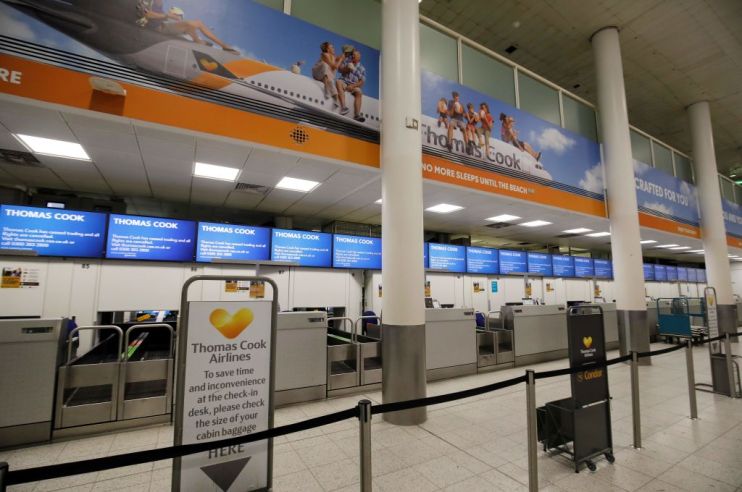Thomas Cook collapse set to net hedge funds millions

The demise of travel firm Thomas Cook has caused chaos, leaving 150,000 Brits stranded abroad and triggering the UK’s biggest peacetime repatriation effort, but hedge funds are set to make millions from the collapse.
Thomas Cook was the most shorted company on the London Stock Exchange ahead of its collapse into liquidation in the early hours of this morning, according to publicly available data, meaning its shares were the most bet-against in the UK.
Read more: Thomas Cook falls into liquidation as rescue talks collapse
Almost 11 per cent of the travel firm’s shares were being shorted when the firm went under, according to the most recent Financial Conduct Authority (FCA) filings.
London-based hedge fund TT International had the biggest short position in the 178-year-old travel company when it folded at at 3.83 per cent, according to FCA figures.
Whitebox Advisors had the second largest bet against the firm at 3.15 per cent, while Kite Lake Capital Management and Melqart Asset Management also held significant short positions.
A short position is essentially a bet that a company’s share price will fall. Short-sellers borrow shares from an existing investor, sell them, and then buy the shares back again from elsewhere before they have to return them. That makes them a profit on any price drops while they held the shares.
“Given how open Thomas Cook had been about how the planned £900m refinancing
package would pretty much wipe out existing shareholders it is not surprising that short-
sellers targeted the stock,” AJ Bell investment director Russ Mould told City A.M.
As Thomas Cook has now gone bust, its shares are worthless – meaning that short-sellers don’t have to repay anyone, but are still paid the difference in price from when they borrowed them.
Hedge funds that held short positions in the firm are poised to make millions from Thomas Cook’s collapse, but the total gains are hard to calculate accurately as many of the funds had been building up their short positions over several months.
Read more: Don’t Thomas Cook it: What customers should do after tour operator collapse
Thomas Cook’s stocks have consistently been among the most shorted in the UK this year, first crossing the 10 per cent threshold in July and peaking at 10.71 per cent just before its collapse.
“The combination of lots of debt, a thin profit margins, a difficult trading environment and a
set firm deadlines for financing talks is a classic one for short-sellers, but this is not to say
they took no risk in their search for a profit,” said Mould, who pointed out that short-sellers would have a substantial lost money on their bets had “more funding become available” to Thomas Cook.
Main image credit: Getty